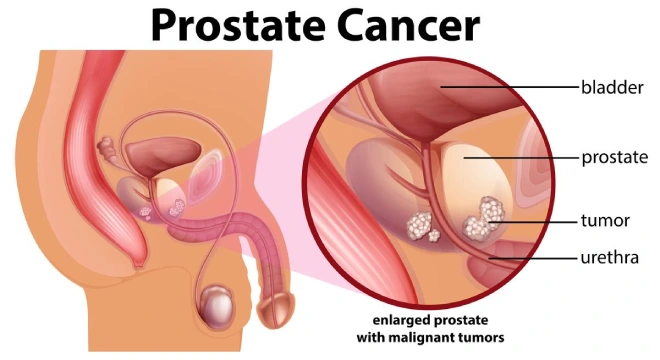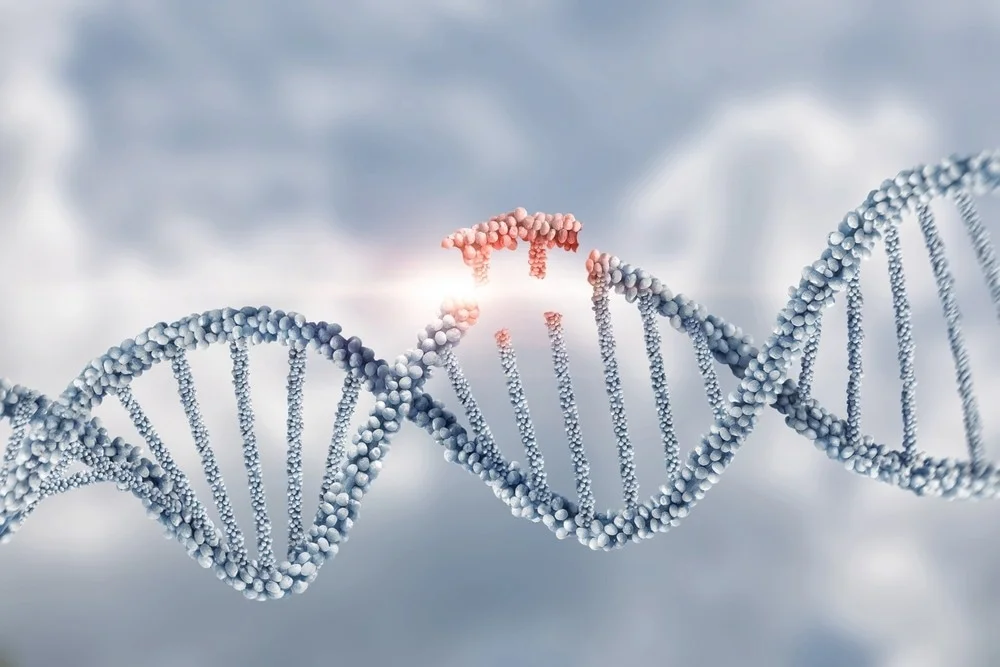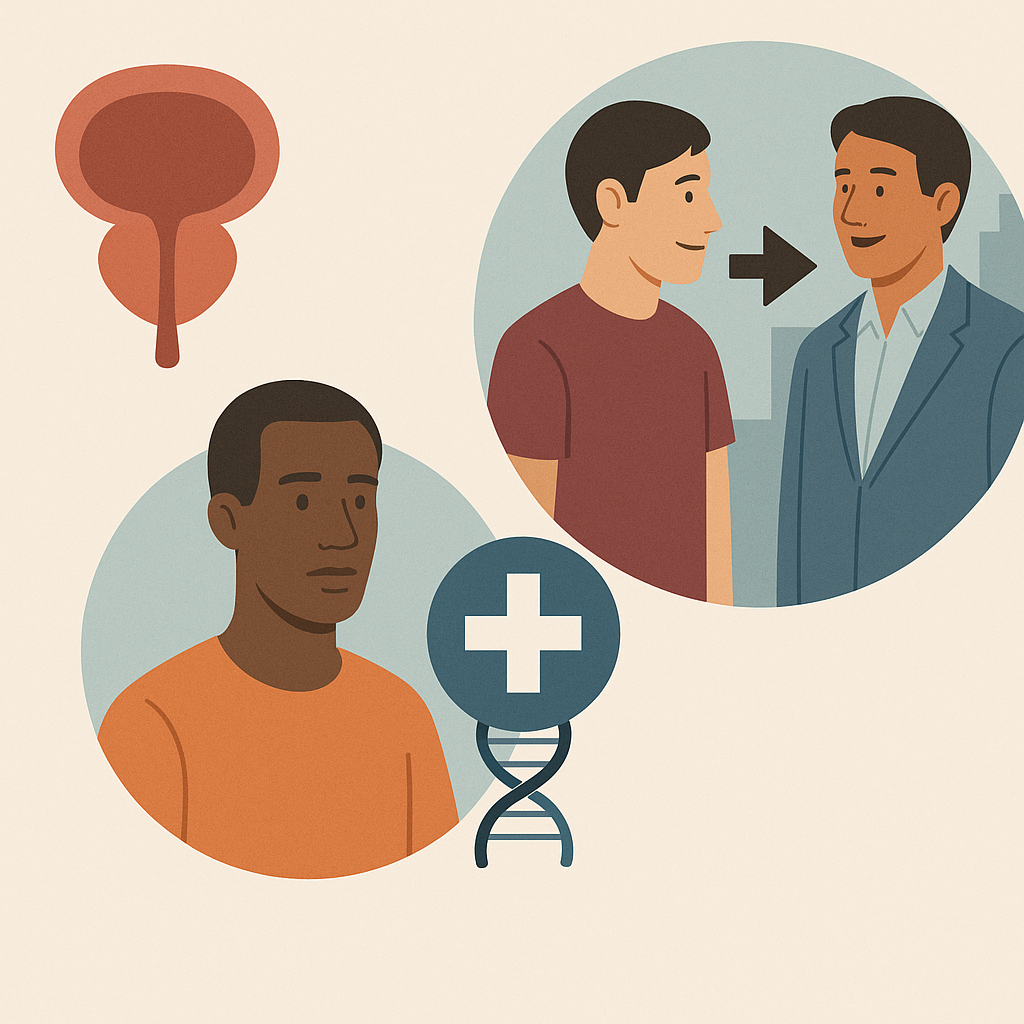Prostate cancer is a leading malignancy among men worldwide, but its incidence and outcomes vary significantly across ethnic and geographic populations. Among foreign men—immigrants or men living outside their ancestral homelands—genetic factors play a pivotal role in shaping prostate cancer risk, often interacting with environmental and lifestyle influences. This article explores the complex interplay of genetics, ethnicity, and migration on prostate cancer susceptibility, highlighting key findings from recent global research. It also discusses the importance of personalized screening and care, especially through specialized men’s health clinics.
I. Understanding Prostate Cancer Risk: Beyond Lifestyle
Prostate cancer is the second most common cancer in men globally, with around 1.4 million new cases and 375,000 deaths in 2020 (GLOBOCAN 2022). While age, diet, and lifestyle contribute to risk, genetics account for a substantial proportion of susceptibility. According to the Nordic Twin Study and other research, hereditary factors may explain up to 57% of prostate cancer risk (Spandidos Publications, 2025). This genetic predisposition varies across populations, influencing both incidence and disease aggressiveness.

II. Genetic Variations and Ethnic Disparities in Prostate Cancer
1. Ethnic Differences in Genetic Risk
Men of African descent, including African American and African Caribbean populations, exhibit higher prostate cancer incidence and mortality rates compared to men of European or Asian ancestry. This disparity is partly attributed to a higher prevalence of genetic variants linked to aggressive prostate cancer, such as mutations in BRCA1, BRCA2, and HOXB13 genes (Spandidos Publications, 2025). For example, a West African-specific single nucleotide polymorphism (SNP) on chromosome 8q24 (rs7824364) is associated with increased positive biopsy rates in African American men (Spandidos Publications, 2025).
Conversely, Asian men generally show lower prostate cancer incidence, possibly due to protective genetic variants and different androgen metabolism pathways (PubMed, 1997). However, when Asian men migrate to Western countries, their prostate cancer risk tends to increase, suggesting gene-environment interactions (PubMed, 2009).
2. Genetic Risk Among Foreign-Born Men
A large Swedish cohort study comparing prostate cancer risk between foreign-born and Swedish-born men found that foreign-born men overall had a 40% lower risk of prostate cancer (RR = 0.62) but men from Middle Africa and the Caribbean exhibited increased risk (PubMed, 2009). Importantly, risk among immigrants increased with longer duration of residence, indicating environmental factors modulate genetic risk over time.
III. Key Genetic Mutations Linked to Prostate Cancer
1. BRCA1 and BRCA2
Mutations in BRCA2 are strongly linked to increased prostate cancer risk and more aggressive disease forms. Men carrying BRCA2 mutations have a twofold or greater risk compared to non-carriers (NCI PDQ, 2003). BRCA1 mutations confer a smaller but still significant risk.

2. Other Genes: HOXB13, PALB2, ATM
Variants in HOXB13 are associated with familial prostate cancer. Additionally, mutations in PALB2 and ATM genes have been implicated in hereditary prostate cancer and aggressive disease phenotypes (Cancer Network, 2020).
IV. Genetic Testing and Personalized Medicine
1. Who Should Consider Genetic Testing?
Men with a family history of prostate or related cancers, early-onset disease, or belonging to high-risk ethnic groups (e.g., African descent) should consider genetic counseling and testing. Identifying pathogenic mutations enables:
- Tailored screening protocols (earlier and more frequent PSA testing)
- Risk-reducing strategies
- Informed treatment decisions, including targeted therapies
2. Advances in Genetic Screening
Next-generation sequencing and multigene panel testing are increasingly accessible, facilitating comprehensive risk assessment. These tools are especially valuable for foreign men whose genetic backgrounds may differ from the populations where most prostate cancer research has been conducted.
V. The Interplay of Genetics, Environment, and Migration
Migration often entails lifestyle changes such as diet, physical activity, and healthcare access, which interact with genetic predispositions. For example, Asian men migrating to Western countries show rising prostate cancer rates over time, highlighting the role of environmental modifiers (PubMed, 2009).
In African immigrants, genetic susceptibility combined with barriers to healthcare access and socioeconomic factors contribute to higher rates of advanced prostate cancer at diagnosis (Spandidos Publications, 2025).

VI. The Role of Men’s Health Vietnam Center in Managing Genetic Risk
Men’s Health Vietnam Center offers critical services tailored to the needs of foreign men at risk for prostate cancer:
- Genetic counseling and testing: Providing education and risk assessment based on family history and ethnicity.
- Personalized screening programs: Designing PSA testing schedules and imaging based on genetic risk profiles.
- Culturally sensitive care: Addressing language barriers, cultural beliefs, and health literacy.
- Lifestyle and nutrition guidance: Supporting modifiable risk factors within cultural contexts.
- Psychosocial support: Assisting with anxiety related to genetic risk and cancer diagnosis.
- Access to advanced therapies: Including precision medicine approaches targeting genetic mutations.
Such integrated care improves early detection, optimizes treatment, and enhances quality of life for foreign men facing prostate cancer risk.
Genetics plays a fundamental role in prostate cancer risk among foreign men, with significant variations across ethnicities and geographic origins. Understanding these genetic influences alongside environmental and lifestyle factors is essential for effective prevention, early diagnosis, and personalized treatment. Men’s Health Vietnam Center equipped with expertise in genetic counseling and culturally competent care are vital in addressing these challenges, empowering men to take proactive steps toward prostate health.
- Address: 7B/31 Thanh Thai Street, Ward 14, District 10, Ho Chi Minh City, Vietnam
- Website: menhealth.vn
- Fanpage: facebook.com/trungtamsuckhoenamgioi
- Contact: (+84) 902 353 353
 0902 353 353
0902 353 353 Giờ làm việc: 08:00 - 20:00
Giờ làm việc: 08:00 - 20:00 7B/31 Thành Thái, Phường Diên Hồng, TP. HCM
7B/31 Thành Thái, Phường Diên Hồng, TP. HCM
